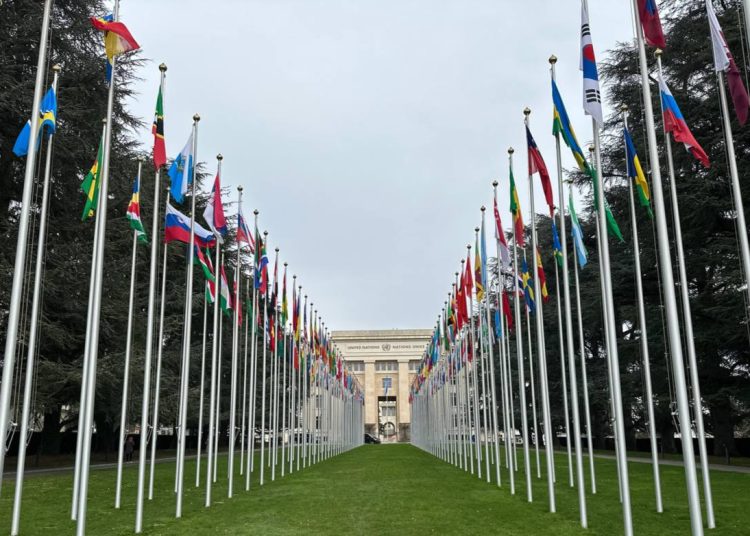Western states have exploited the Human Rights Council to pursue their own agendas and coerce their rivals, while turning a blind eye to the violations committed by their partners. This situation calls for a critical reexamination of the existing international human rights frameworks.
By: Jafar Sherdoost
The notion that every individual, regardless of nationality or locale, is entitled to certain inalienable rights, constitutes a cornerstone of modern statecraft. Yet, within the arena of global politics, this noble aspiration frequently succumbs to the machinations of power, with human rights becoming casualties to political maneuvering. It is against this backdrop that a critical reevaluation of international human rights mechanisms appears necessary, indeed imperative.
Chief among these frameworks rests the Human Rights Council, established in 2006 under the aegis of the United Nations General Assembly. Constituted by 47 member states, selected by their peers, this body carries the weighty charge of safeguarding human rights across the continuum of nations. Over the span of its existence, approximately two decades, the council has sought to address a myriad of human rights concerns via an array of instruments, including resolutions, special procedures, and inquiries, culminating in the Universal Periodic Review process.
Nonetheless, the council’s role and methodologies, which diverge significantly from those of the UN Security Council—where the quintet of permanent members wield veto powers—has led to its co-option as a political instrument, particularly by Western powers. Their purported moral suasion, grounded in the global consensus over human rights, affords these nations a veneer of legitimacy, even when their actions intrude upon the sovereignty and interests of other states.
A stark illustration of this dynamic is the leverage of human rights rhetoric by Western nations, with the United States at the fore, to justify unilateral sanctions. These sanctions, spanning the gamut from economic to military, are ostensibly designed to compel nations to alter their conduct. Paradoxically, such measures often erode the human rights of the very populations they claim to protect—imperiling the welfare of the vulnerable and crippling access to essentials like healthcare, education, and sustenance.
Further tarnishing the integrity of human rights advocacy is the selective application and overt double standards that betray an inconsistency at the heart of the council’s mission. The conspicuous silence or inertia on severe human rights abuses, exemplified by the Israeli actions in Gaza, starkly contrasts with the council’s stance on other geopolitical crises. This discrepancy reveals the utilitarian deployment of human rights as a political ploy, conspicuously in the context of Western antipathy toward nations like Iran for their support of Palestinian cause.
The practice of selective engagement with human rights issues—a silence on allies’ transgressions juxtaposed with censure for adversaries—casts a long shadow over the West’s use of Human Rights Council’s legitimacy. The political exploitation of council mechanisms, from special rapporteurs to country-specific resolutions, not only compromises the council’s integrity but also poses a grave threat to its capacity to fulfill its foundational mandate.
Through such deviations, the Human Rights Council has found itself increasingly estranged from its primary objective: the global advocacy and safeguarding of human rights. Its transformation into a political apparatus has not merely impaired the rights of countless individuals worldwide but has also precipitated a profound crisis of confidence and credibility within the international community concerning the council and its various instruments. It is therefore incumbent upon the global order to undertake a thorough reassessment of the current international human rights infrastructure and mechanisms. The goal must be to rehabilitate these institutions, ensuring that they serve not as instruments of political leverage but as bastions for the defense of human dignity and welfare. Only through such a recalibration can we assure that human rights remain an impenetrable shield, upholding the inherent value of every person on the planet.
The views expressed in this article are those of the author and do not necessarily reflect the positions of Iran Nuances.





